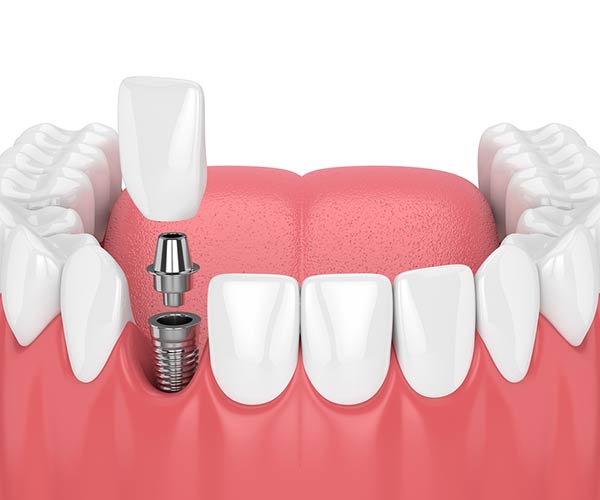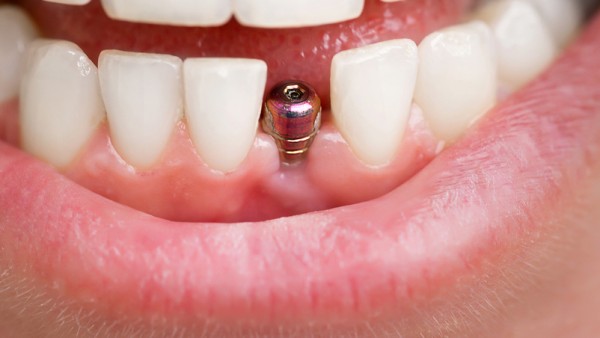How Long Is The Lifespan Of Dental Implants? Answered By Home Dental Dentist
To prolong the lifespan of dental implants, it is necessary to have them implanted immediately after tooth loss, choose a reputable dental brand, and opt for high-quality implant posts that ensure the condition of the jawbone. Additionally, the use of support equipment systems should be done correctly, proper oral hygiene should be maintained, and a scientific dietary regime should be followed. Dental implants can last up to 20 years or even permanently if properly cared for, and their lifespan depends on factors such as the skill of the performing dentist and the quality of the implant posts.
Contents
How long do dental implants last after being restored?
According to experts, dental implants can last for more than 20 years after restoration, and many cases have shown they can last a lifetime. With many advantages during use, the solution of restoring teeth with implants has gained the trust of a large number of users. Directly placing implant posts into the missing tooth area is a significant advancement in medical technology. Nowadays, there are various types of implant posts designed to fit securely into the jawbone. Implant posts are deeply embedded into the jawbone, acting as a real tooth root, which helps the dental crown perform its chewing function well. Implant posts also support limiting the condition of jawbone resorption, unlike other methods of restoring missing teeth. This promotes strong and long-lasting teeth. The durability of dental implants is much higher than that of other restorative methods. If removable dentures or dental bridges are convenient for patients to remove, implant posts have superior stability. When implanted directly into the tooth’s jawbone, after a compatible period, they ensure the chewing and grinding function, just like real teeth. This is the most significant advantage, bringing convenience to patients.

Factors affecting the durability of dental implants.
The lifespan of dental implants depends on various factors, such as the dentist’s skill, the jawbone’s condition, the technology used, oral hygiene, etc. Below are the top 5 factors that significantly affect the longevity of dental implants:
The skill of the doctor performed
Implant-based tooth replacement is a rather complex dental restoration method, hence the skill level of the doctor team has a decisive impact on the success rate of the procedure—the more experienced the doctor, the more meticulous the procedure, ensuring safety and post-operative effectiveness.
Moreover, anticipating potential complications to have timely measures in place and prevent dangerous post-implant complications. Conversely, if the Implant placement is performed by an inexperienced or unqualified practitioner, it may negatively affect oral health.
Quality of implant post to apply
As mentioned above, the implant post plays a crucial role in extending the lifespan of dental implants. Therefore, when performing the procedure, it is necessary to select implant posts with a specific origin and clear certification by the Ministry of Health to ensure integration with the jawbone occurs quickly and the new tooth can become firmly established.
However, if low-quality implant posts are used, there is a high risk of serious health complications for the patient. As a result, the lifespan of the dental implant may not be durable.
Actual jawbone condition
The condition of the jawbone is also one of the major factors that significantly affect the longevity of dental implants, which many people may not be aware of. When the jawbone is healthy and has a certain thickness, the implant post can integrate and anchor more firmly.
However, if the jawbone is deteriorating and weakened, it will be difficult for the implant post to survive in the long term. In this case, the jawbone may recede and impact the newly implanted tooth. Without adequate stability, the tooth may become loose, limit chewing function, and reduce the lifespan of the implant.
Support equipment system
Due to the complexity of dental implantation, modern and advanced equipment is required for accurate diagnosis and treatment planning. The precise location for implant placement must be determined to avoid damage to adjacent teeth. Adequate sterile facilities before and after surgery are also essential to prevent infection.
Outdated technology and equipment may result in an inaccurate diagnosis, leading to improper alignment between the implant and gum tissue. This can result in food particles getting trapped and creating a breeding ground for harmful bacteria, causing gum inflammation and peri-implantitis.
Post-operative care regimen
Many patients tend to be negligent about post-implant care, but it is one of the crucial factors for ensuring the longevity of dental implants. During the initial postoperative period, poor oral hygiene can lead to bacterial invasion and various dental diseases. Similarly, dietary restrictions are also important as the implant structure is not yet stable, and patients should avoid hard and crunchy foods.
Adhering strictly to the guidelines for post-implant care and dietary restrictions can lead to a strong and healthy set of teeth, ensuring the durability of dental implants.

Instructions on how to prolong the life of dental implants
Dental implants often have a very long lifespan and can last indefinitely if the following guidelines are followed:
The implant is as soon as the tooth is broken
If a missing tooth space is left for too long, it can weaken the jawbone, no longer providing a stable base for an integrated and stable implant post. Therefore, implant placement immediately after tooth loss is one of the important considerations for extending the lifespan of the tooth.
At that time, the jawbone is ensured to be strong, with density and volume not yet depleted, making it suitable for implantation. This greatly supports the longevity of the tooth on the dental arch.
Implant teeth at a reputable brand
Finding a reputable dental restoration clinic will ensure the longevity of the dental implant. These clinics have experienced doctors with extensive expertise, ensuring maximum accuracy during the procedure. This not only provides optimal results but also helps to prevent dangerous complications, allowing the dental implant to last for a long time. Moreover, patients are guaranteed a warranty in case any postoperative complications occur.
Looking for high-quality Implant posts
The durability of dental implants is also evaluated based on the manufacturing brand of the implant post. Implant posts made from high-quality materials typically have a longer lifespan than traditional posts. This is due to advanced surface treatment technologies and techniques for creating grooves and threads, which help the post securely adhere to the jawbone. Therefore, choosing an effective type of implant post will provide maximum stability and extend the lifespan of the implant.
Proper oral hygiene
To maintain the longevity of dental implants, patients need to pay attention to proper oral hygiene. Specifically, after the implantation procedure, they should not brush their teeth and avoid rinsing their mouth with salt water for the first three days. This is because it can affect the wounds at the implant site. After that period, patients can perform regular oral hygiene practices, preferably using specialized toothbrushes and only visiting dental clinics for cleaning. This approach not only limits the invasion of bacteria but also promotes faster wound healing, resulting in stronger and healthier teeth.
Have a scientific diet
Patients should strictly follow their doctor’s instructions on diet to promote the long-term survival of dental implants. This includes limiting the consumption of hard, tough, or crunchy foods that could impact the structure of the newly implanted area. Patients should also avoid drinking alcohol and using stimulating substances to prevent bleeding after implantation. In addition, patients should consume plenty of vitamin C found in fresh fruits such as oranges and grapefruits to boost immunity and aid in wound healing. Dark green vegetables such as kale, spinach, and broccoli are rich in vitamins D and E, which effectively support bone integration in the jaw.
This article has answered many people’s questions about the lifespan of dental implants and how to extend their longevity. However, it is recommended that patients visit reputable implant dentistry clinics to receive direct advice from their doctors.
